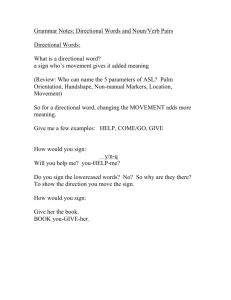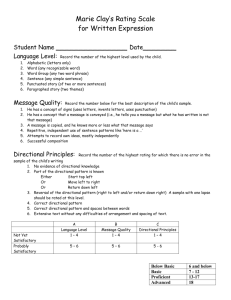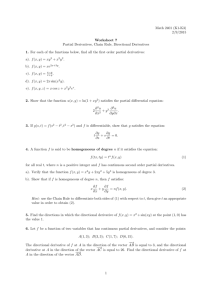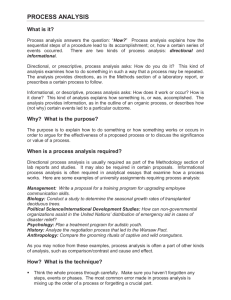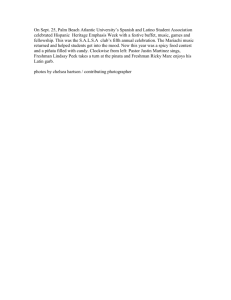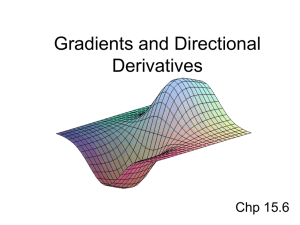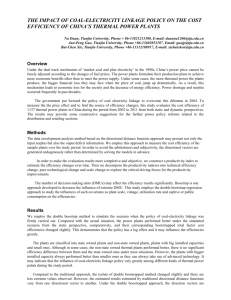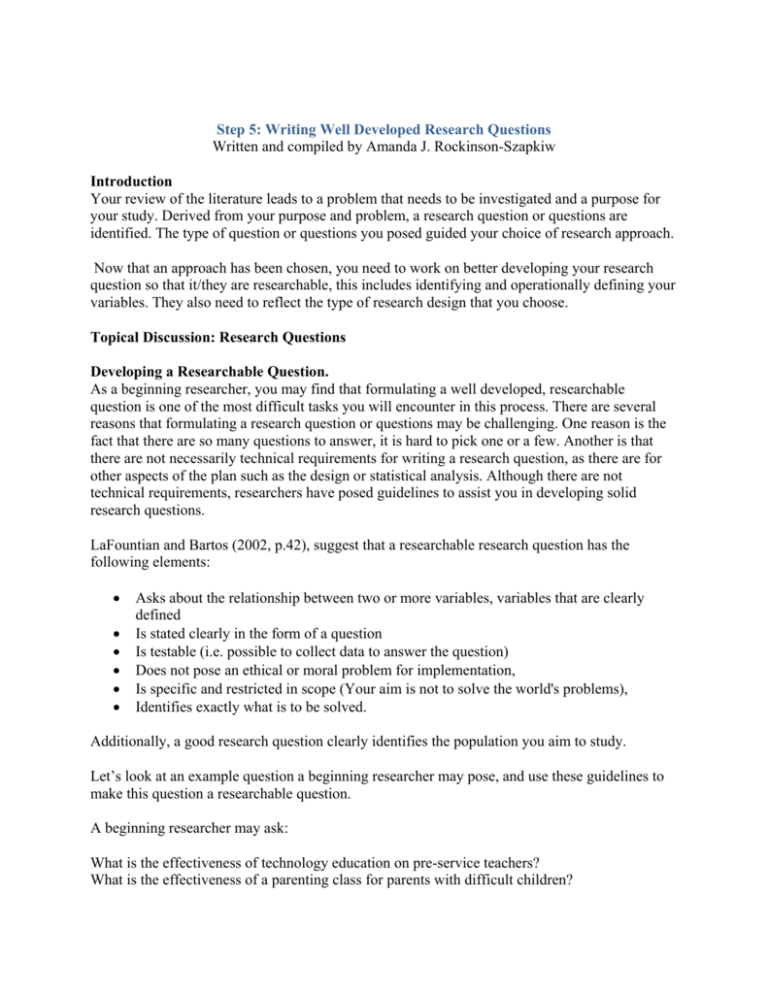
Step 5: Writing Well Developed Research Questions
Written and compiled by Amanda J. Rockinson-Szapkiw
Introduction
Your review of the literature leads to a problem that needs to be investigated and a purpose for
your study. Derived from your purpose and problem, a research question or questions are
identified. The type of question or questions you posed guided your choice of research approach.
Now that an approach has been chosen, you need to work on better developing your research
question so that it/they are researchable, this includes identifying and operationally defining your
variables. They also need to reflect the type of research design that you choose.
Topical Discussion: Research Questions
Developing a Researchable Question.
As a beginning researcher, you may find that formulating a well developed, researchable
question is one of the most difficult tasks you will encounter in this process. There are several
reasons that formulating a research question or questions may be challenging. One reason is the
fact that there are so many questions to answer, it is hard to pick one or a few. Another is that
there are not necessarily technical requirements for writing a research question, as there are for
other aspects of the plan such as the design or statistical analysis. Although there are not
technical requirements, researchers have posed guidelines to assist you in developing solid
research questions.
LaFountian and Bartos (2002, p.42), suggest that a researchable research question has the
following elements:
Asks about the relationship between two or more variables, variables that are clearly
defined
Is stated clearly in the form of a question
Is testable (i.e. possible to collect data to answer the question)
Does not pose an ethical or moral problem for implementation,
Is specific and restricted in scope (Your aim is not to solve the world's problems),
Identifies exactly what is to be solved.
Additionally, a good research question clearly identifies the population you aim to study.
Let’s look at an example question a beginning researcher may pose, and use these guidelines to
make this question a researchable question.
A beginning researcher may ask:
What is the effectiveness of technology education on pre-service teachers?
What is the effectiveness of a parenting class for parents with difficult children?
What is the effectiveness of media rich technology education on students?
Let’s examine the latter question. This question is stated in question form. The researcher did not
state, “The media rich technology education will be effective for students.” It does not appear to
pose any foreseeable ethical or moral problems at this point, and the question does not pose any
value judgments. The question does ask about the relationship between two variables, a media
rich technology education and effectiveness. However, these variables are not clearly defined,
thus, making it difficult to identify what exactly it is that the researcher is attempting to solve and
making it difficult to determine if it is testable. The population is students, but this could also be
more clearly defined.
What is meant by effectiveness, media rich technology education, and students? These terms
need to be clearly defined, more specifically, operationally defined, to make this question
researchable (LaFountian & Bartos, 2002). An operational definition is a clear, concise definition
of how a variable is being measured or the observable condition (LaFountian & Bartos, 2002).
This is distinctly different from a simple dictionary definition.
For example, in the dictionary, effectiveness is defined as "adequate to accomplish a purpose;
producing the intended or expected result." This is not precise enough for research purposes as
this could refer to numerous things. It only defines the general construct. A more exact indicator
of effectiveness may be the score on a validated math achievement test and scores on a validated
math attitude survey (e.g. Attitudes Toward Mathematics Inventory). The media rich technology
education may more precisely be the Math 2.0 program, and students may more precisely be
defined as a second grade students enrolled in a regular education classroom. The entire
question, with operational definitions, may read:
What is the effect of the Math 2.0 program on second grade students’ mean math
achievement scores?
What is the effect of the Math 2.0 program on second grade students’ attitude toward
math as measured by the Attitudes Toward Mathematics Inventory ?
Is there a difference in the mean math achievement scores of second grade students who
participate in the Math 2.0 program as opposed to second grade students who participate
in a traditional math class?
Is the difference in the second grade students’ attitudes toward math as measured by the
Attitudes Toward Mathematics Inventory who participate in the Math 2.0 program as
opposed to second grade students who participate in a traditional math class?
These questions are clearer and more focused. These questions specify the method of
measurement and the specific population. The questions identify the specific participants to be
studied, the variables included in the study, and the specific data that is to be collected. In fact in
the second question, both levels of the independent variable are clearly identified. It is clear that
the research intends to compare two groups who participated in two different treatments. The
questions are testable.
Writing a Question to Reflect Your Design and Analysis: Choosing the Terminology
Not only are operational definitions of variables important in identifying exactly what is to be
solved; the terminology used to ask about the relationship between variables is also important.
Although not all researchers would agree as they use terminology interchangeably, some
researchers suggest that the terms used imply the research design and statistical analysis that will
be used in the study. Thus, it is important for you to be precise in terminology.
If you use the term “relationship,” you imply that you are looking for a simple
relationship between variables. Thus, you probably intend to conduct a correlation study.
If you use the term “difference,” you imply that you intend to compare two or more
groups. Thus, you probably intend to conduct a group comparison study.
If you use the term “effect,” you imply that you intend to determine if one variable
caused and effect on another variable. Thus, you probably intend to conduct an
experimental study.
Let’s consider some example questions, “Is there a difference in university students’
perceived learning based on type of online course in which they participate (synchronous and
asynchronous or asynchronous only)?”This question implies that a causal comparative research
design may be used. It also implies the use of an independent t test because two independent
groups are being compared on one variable. The question, “Is there a difference in university
students’ teaching presence, cognitive presence, and social presence based on type of online
course in which they participate (synchronous and asynchronous or asynchronous only)?”, may
also imply the use of a casual comparative research design. However, it implies the use of
MANOVA because two independent groups are being compared on three related variables.
So, the terminology that you use in posing your question should precisely represent what
you are examining; the research question(s) should inform both your research design and
analysis choices. It is a good idea to reexamine the alignment of your question, hypothesis,
research design, and analysis after you have written your entire plan. Toward the end of this
workbook there is a chart to assist you with this.
Choosing a Directional or Non-directional Research Question
In discussing the writing of researchable research questions, it is important to discuss one
final aspect, directional versus non directional questions.
Non- Directional Questions. Non- directional questions do not specify the direction of the
expected relationship nor specify that one group will do better than another. Words such as
“effect,” difference” and “relationship” denote non- direction.
The question, “What is the effect of the Math 2.0 program on second grade students’
mean math achievement scores ?” is a non-directional research question.
Directional Questions. Directional questions specify the direction of the expected relationship
or specify that one group will do better than another. Words such as “increase”, “decrease”,
“positive relationship,” and “negative relationship” denote direction.
The question, “Does second grade students’ participation in the Math 2.0 program increase their
math achievement scores?” is a directional question.
Directional questions should only be posed when the literature clearly supports their use. For, if a
wrong direction is predicted, significant findings can be missed. That is, if a directional question
is posed, the hypothesis should be written consistently as a directional hypothesis and a one
tailed analysis should be conducted.
The Case of Charlie
Charlie proposed the following research questions based on his identified design and variables:
Is there a difference in the anxiety levels (as measured by the Beck Anxiety Inventory®
(BAI®); Beck & Steer, 1990 ) of college freshman diagnosed with generalized anxiety
disorder when participating in a traditional freshman orientation as compared with the EI
CBT freshman orientation while controlling for anxiety scores?
What is the effect of participation in a traditional freshman orientation as compared with
the EI CBT freshman orientation on college freshman’s academic achievement as
measured by first semester GPA while controlling for previous achievement (i.e. High
school GPA)?
What is the effect of participation in a traditional freshman orientation as compared with
the EI CBT freshman orientation on college freshman’s interpersonal skills as measured
by the Positive Relations With Others scale (Ryff,1989; Ryff & Keyes, 1995) while
controlling for previous interpersonal skills?
Application: Developing My Research Plan
Now it is your turn. What is your research question or questions?
______________________________________________________________________________
______________________________________________________________________________
______________________________________________________________________________
______________________________________________________________________________
______________________________________________________________________________
______________________________________________________________________________
Now let’s analyze each question using LaFountian and Bartos (2002, p.42), guidelines:
Are you posing a question stated clearly in the form of a question? Yes/ No
Does your question ask about the relationship between two or more variables? Yes/ No
Are the variables clearly defined? More specifically, operationally defined? Identify each
variable and write the operational definition.
_______________________________________________________________________
_______________________________________________________________________
_______________________________________________________________________
_______________________________________________________________________
_______________________________________________________________________
_______________________________________________________________________
Is your question testable, that is, is it possible to collect data to answer the question? Yes/
No
Do you think that your question will pose any ethical or moral problems for
implementation? For example, are you an administrator asking those under your
authority, perhaps teachers, to participate in your non-anonymous research? If so, you
may ask is this truly then voluntary participation in my research or might the teachers feel
coerced? Probably the later; thus, your question probably poses an ethical problem for
implementation. Likewise, if you are a counselor and are asking clients to particpate in
your research, because of the power differential they may feel coerced if your research is
borderline, how will you safeguard against coercion?
________________________________________________________________________
________________________________________________________________________
________________________________________________________________________
________________________________________________________________________
Is my question specific and restricted in scope? Have I limited the number of questions I
am asking? Yes/ No
Is my population clearly identified in my question? Y/N
After analyzing my research question or questions, what are my revisions? Rewrite each research
question.
______________________________________________________________________________
______________________________________________________________________________
______________________________________________________________________________
______________________________________________________________________________
______________________________________________________________________________
______________________________________________________________________________
After reviewing the research question (s), I just wrote, is the terminology (e.g. “relationship,”
“effect) appropriate for what I plan to study? Rewrite the questions (s), if needed, to reflect a
group comparison, correlational, or experimental study.
______________________________________________________________________________
______________________________________________________________________________
______________________________________________________________________________
______________________________________________________________________________
______________________________________________________________________________
______________________________________________________________________________
Based on the terminology used, is my question(s) directional or non-directional? Directional/
Non-directional
Does the literature support my directional or non-directional question(s)? Explain and provide
citations to support assertions.
______________________________________________________________________________
______________________________________________________________________________
______________________________________________________________________________
______________________________________________________________________________
Do I want to keep my question(s) as they are or change it/ them to be directional or non
directional? Here are the research question(s) I plan to use for my research plan.
______________________________________________________________________________
______________________________________________________________________________
______________________________________________________________________________
______________________________________________________________________________
______________________________________________________________________________
______________________________________________________________________________
© 2012. Szapkiw. All rights reserved. This material may not be published, broadcast, rewritten,
or redistributed in whole or part without the express written permission of the authors. Contact
amandaszapkiw@gmail.com

